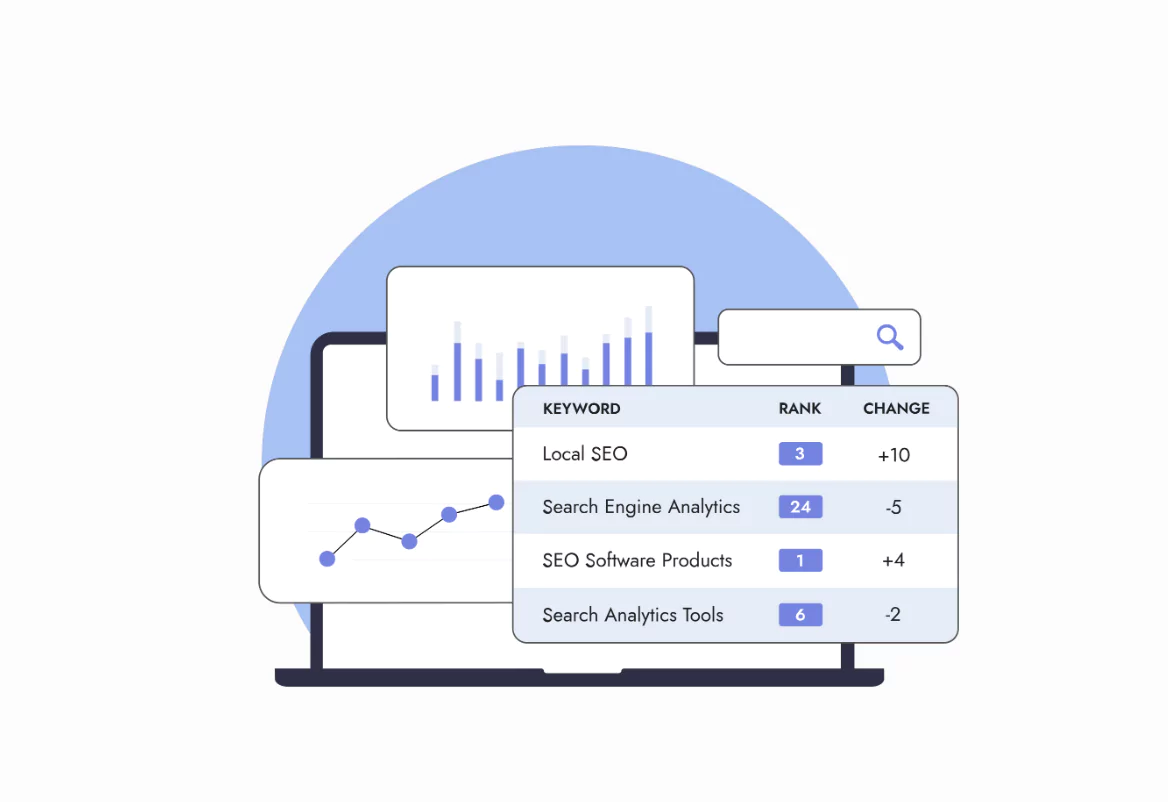Keyword overview is something every SEO Professional must be familiar with. Without keyword research, you’re just guessing what your audience wants. As a digital marketer, the concept of keyword research is essential, and you cannot ignore it. The starting point of every successful SEO or marketing strategy is keyword research.
Here, we will cover all the ways that you can use to find keywords that actually drive traffic, including the exact steps, tools, and right mindset you need to make your content rank high.
Keyword Overview: Definition
A keyword is a word or a phrase related to your main topic which are used to help it reach the right audience. It also helps search engines understand what your page and content is about, which makes search engines show your content to the relevant search query. A right keyword is the one selected while keeping the following points in mind.

- Search Volume: Search volume refer to how many times a keyword has been searched per month.
- Keyword Difficulty: Keyword Difficulty, or KD, states how competitive it is to rank for a particular keyword. The lower the KD, the better it is.
- Cost per click (CPC): CPC is useful for paid campaigns
- Trends: You must check for trends as keyword popularity varies by time and season.
If you understand the above factors, you will be able to research perfect, high-volume, and low keyword difficulty keywords.
Why Finding The Right Keyword Matters?
Keyword overview is all about finding the right keyword. Finding the right keywords matters the most if you want to drive traffic to your website. Whether you’re a beginner working on a new website or have an already established website, the end goal remains the same: driving traffic and getting conversions. Let’s understand the key points of why the a detailed knoweldge of keyword overview plays an important role.
- High traffic: If you select the keywords while keeping in mind the relevance between the content and the user intent, it will drive higher traffic.
- Increased Conversion rate: The right keyword helps you to connect with your audience, which eventually results in increased conversion rates for your website.
- Improved SEO efficiency: The right keywords save your time and effort by helping you focus only on the valuable and potential keywords.
- Improved Ranking on SERP: When your content is clear, it helps search engines understand better what your website and webpage is about, which automatically improves the rankings of your content.
How To Find Keywords That Drive Traffic?

The keyword process might take some time but the results it will provide you will be worth the hard work. Some of the ways to find the right keyword to drive traffic are mentioned below, have a look at them and make your SEO strategy stong.
1. Brainstorm the ‘seed keyword’
Start by deciding the topic for the content you want to post. Ask yourself one simple question: What would my audience type in Google? Let’s understand with the help of an example. For example, you are offering a digital marketing course, then your seed keywords can be anything from:
- Digital marketing course online
- Learn digital marketing online
- Best Digital Marketing Course
- How to become a digital marketer, etc.
This is just the starting point, the actual research starts after this step.
2. Understand Search Intent
You have to understand what your audience is searching for and what they need. Whether they are looking for an informational post or trying to navigate to a particular website. Let’s understand the various reasons behind a user’s search.
- Informational: When user is looking for a specific answer to the question. For example, what is SEO?
- Navigational: When the user is trying to find a particular website.
For example, PW Skills Blog
- Transactional: When the intention of the user is to buy a product or a service. For example, buy digital marketing course
- Commercial: When the user wants to do research and compare between products or services. For example, Best SEO course online
Once you understand the user Search intent, it is essential that you match your content with the user’s intent to help, then find what they need and increase your chance for ranking on Search Engine Result Pages (SERPs). For example, a person searching for ‘cold coffee recipe’ would want a step-by-step tutorial page, not a cafe’s menu.
3. Analyse Keyword Metrices
You have to make sure that your seed keyword (primary keyword) and all the other keywords (secondary or long tail keywords) must have high volume and low KD. This will increase your chances of ranking for that keyword. You can use tools like Semrush, Ahrefs, Moz, Google Keyword Planner, etc to track all the matrices of a keyword and make the right choice.
Remember: High Volume + Low KD is your target.
4. Keep a check on Competitor’s Content
After deciding your seed keyword, go to Google, search for your seed or primary keyword and thoroughly check the top ranking pages for that keyword. Have a look at the words and phrases they have repeated again and again. Include them in your content for better rankings.
You can also use tools like Ahrefs to check competitor analysis. Simply, visit Ahrefs, go to site explorer, enter the domain of your competitor and you’ll see:
- Top pages by traffic
- Keywords they rank for
- Backlinks for their pages, etc.
5. Use Keyword Research Tools
You can use various keyword research tools available online to get an idea of what’s trending and which keywords are frequently searched. There are both free and paid options available to find the perfect keywords to improve your rankings. Let’s have a look at both of them, one-by-one.
Keyword Overview: Free Keyword Research Tools

First of all, let’s find out the best free keyword research tools available online.
1. Google Keyword Planner
Google Keyword Planner is one the best free keyword research tools available online. You can simply sign in to your Google ads account and access the various features that Google provides for searching for a perfect high-volume, low-difficulty keyword.
Key Highlights
- Free SEO tool
- Gives Search volume, competition analysis and CPC (Cost per click) data
- It is best for SEO beginners.
2. Google Trends
Google Trends helps you to check which terms are in trend currently, and if it matches your niche, you can cover content around them to get ranked. You can visit and check Google Trends simply through your web browser for free.
Key Highlights
- It shows keyword popularity over time
- It helps to identify seasonal and trending topics.
3. Ubersuggest (Free version)
Ubsuggest is also an SEO tools with limitations for its free version. You can enter up to 3 keywords and it will generate similar keywords for your content with search volume, keyword difficulty and more. However, in the free version of Ubersuggest, you get only 3 searches per day.
Key Highlights
- It gives keyword suggestions, search volume, and competition analysis. But it has limited features for free users.
4. AnswerThePublic
It is an SEO tool that lets you search for what other people are searching on different platforms. It is the best tool for finding long-tail keywords and also for deciding your main topic.
Key Highlights
- It lets you know what people are searching across different platforms.
- It gives keyword ideas in the form of questions.
- It is best for finding long-tail keywords.
Keyword Overview: Paid Keyword Research Tools
Now, let us check out some of the paid SEO tools for keyword research which are genuinely worth spending your money on.
1. SEMrush
SEMrush is a paid SEO tool which provides various features for finding out the best keyword which can improve your rankings. It provides competitor analysis, search volume, keyword difficulty, search intent, and more.
Key Highlights
- It provides a detailed keyword overview with SERP analysis.
- It also provides competitor keyword data.
- It is a paid tool but the features are worth paying for
2. Ahrefs
Ahrefs is one of the most used tools for backlink research and competitor analysis. It gives keyword difficulty, search volume, and much more.
Key Highlights
- It gives strong backlinks and keyword analysis
- It also offers keyword difficulty, along with great analysis of competitors.
3. Moz
Moz is one of the beginner friendly tools for SEO. The main focus of Moz keyword explorer is to give keyword opportunities based on search volume and keyword difficulty.
Key Highlights
- It has a beginner friendly interface
- It is easy to use
- It provides keywords based on volume and KD
4. KWFinder (by Mangools)
KWFinder is a simple and affordable tool which can be used for finding the best long-tail keywords. You can enter your main keyword, and the tool will provide you long-tail keyword options.
Key Highlights
- It is affordable and simple to use
- It is best for finding long-tail keywords.
Tips To Choose Keywords That Actually Drive Traffic
Follow the below tips to find the right set of keywords for your content.
- You must focus on long-tail keywords because are less competitive and can give you results.
- You can check your competitor’s website and top ranking pages for your keyword to see what keywords they rank for.
- You must prioritize keywords that match the intent of your user and content. For example, focus on keywords with buyer intent if your goal is conversions.
- Make sure to update your keywords as the trends change.
Learn Digital Marketing Skills with PW Digital Marketing Courses
For those who want to build a shining career as a Marketing Consultant, mastering modern digital marketing techniques is essential. PW Digital Marketing Course offer industry-relevant training in SEO, content marketing, social media strategy, and performance analytics, equipping learners with the practical skills and certifications needed to stand out in the market.
Whether you’re preparing for your first Marketing Consultant job or aiming to enhance your existing skill set, explore PW Digital Marketing Courses today and take the next step toward a rewarding marketing career.
Keyword Overview FAQs
Q1. How to find the right keywords that actually drive traffic?
Ans: Focus on finding out the keywords with high search volume and low keyword difficulty. This will increase your chances of getting ranked on the search engine result pages.
Q2. Are paid SEO tools worth investing?
Ans: Yes, some of the paid SEO tools like SEMrush and Ahrefs can really make a difference in your SEO strategy as they provide really deep insights and can improve your SEO strategy and therefore rankings.
Q3. How to find the best performing keyword?
Ans: To find the best performing keyword, the simplest method you can use is to go to the Google, type in your primary keyword and see what Google Autocomplete shows.
Q4. Can I only rely on free keyword research tools?
Ans: Yes, various free SEO tools are great for finding out the right keywords. For example, you can use Google Keyword Planner, Ubersuggest or AnswerThePublic for researching high-volume, low-difficulty keywords. However, for more detailed insights and competitor analysis, you might have to take help from some paid tools.

